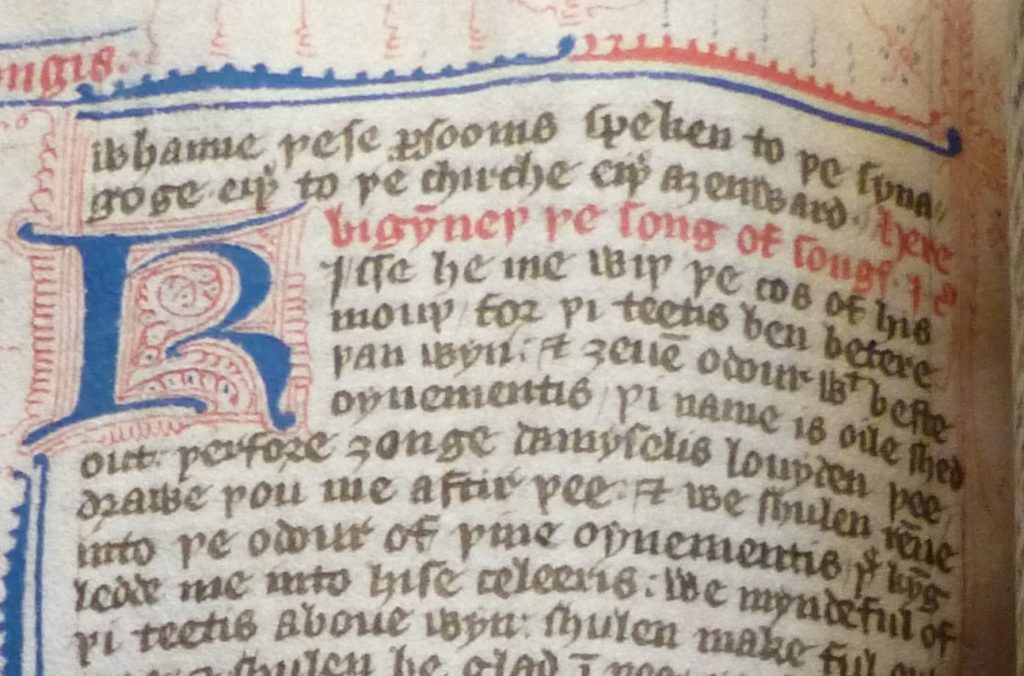
You can now hear me read the first chapter of the later Wycliffite translation of Song of Songs in (an approximation of) fourteenth-century London Middle English, here.
I was invited to contribute this as part of the larger Der Klang der Bibel project, which has gathered a marvellous set of reconstructive Bible readings; these in turn were showcased as part of the 2019 exposition of the Bavarian Academy of Sciences and Humanities, on the theme ‘the sound of Europe’.
The first chapter of Song of Songs is not the easiest passage to cover, since it’s amatory poetry, and also since it’s very difficult to distinguish the speakers. In fact, this second problem persists across the original text and all translations, as you can see in the interpretive glosses and subtitles accompanying the text in many different languages from late Antiquity to the present day. Reading Middle English aloud is always good fun, however, and so I was still very happy to record this.
My process for recording usually goes something like this:
- Print the passage in a large, well-spaced format
- Read the passage in short chunks and mark-up elisions and any sounds with which I have trouble
- Do several practice runs
- Attempt a full recording, make a mistake at some point
- Repeat (4) until I don’t make a mistake
This isn’t as off-the-cuff as it might (I hope) sound, and, if you listen closely, you’ll hear at least one place in the finished recording where I nearly err.
Some caveats apply: I’m not a historical linguist—I’m sure I make some slips in my pronunciation—and I’ve had no hand in the explanatory text surrounding my recording. But I don’t think you can find many other recordings of the Bible in Middle English online, and (in my view) a big part of reading Middle English aloud well is just having the willingness to step up and give it a go: a recording which exists with errors is always better than non-existent perfection!
For more information about this Middle English translation of the Bible, and the new edition-in-progress, visit the Wycliffite Bible project’s site!
Comments